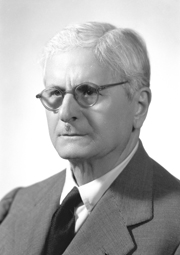Arturo Labriola facts for kids
Arturo Labriola (born January 21, 1873 – died June 23, 1959) was an important Italian politician and journalist. He was known for his ideas about workers' rights and social change. He started as a revolutionary who wanted big changes, but later worked within the government to make things better.
Contents
Biography of Arturo Labriola
Early Life and Political Beginnings
Arturo Labriola was born in Naples, Italy, on January 21, 1873. His father, Luigi Labriola, was a craftsman. Arturo studied law at the University of Naples. While he was a student, he became interested in politics.
In 1891, he joined a group called the Republican-Socialist University Circle. From 1892 to 1895, he wrote for several newspapers and magazines that focused on social and political ideas. He also supported the Fasci Siciliani, which were groups of workers and farmers in Sicily who wanted better conditions. Because of this, he was suspended from his university studies for a year. In 1897, Labriola joined the Italian Socialist Party (PSI). He even fought in the Greco-Turkish War in Crete that same year.
Time Away from Italy
In May 1898, there were big protests by workers in Milan against the government. The government stopped these protests very harshly, and many people were arrested. To avoid being arrested himself, Labriola had to leave Italy.
He went to Geneva, Switzerland, where he taught at the University of Geneva. He also worked with a famous thinker named Vilfredo Pareto. However, Labriola was soon asked to leave Switzerland. He then moved to Paris, France. In Paris, he met other important socialist thinkers like Georges Sorel and Paul Lafargue.
Return to Italy and Changing Ideas
Arturo Labriola came back to Italy in 1900. In 1902, he started a weekly newspaper called Avanguardia Socialista. This newspaper became a main place for people who believed in "revolutionary syndicalism." This idea meant that workers should organize themselves into strong unions and use strikes to bring about big social changes.
Later, Labriola changed his mind about revolution. He started to believe in "Marxist Reformism." This meant he thought it was better to work within the existing political system to make gradual changes, rather than trying to overthrow it completely. He became a member of the Italian Parliament as an independent politician.
When World War I started, Labriola supported Italy joining the war. He even served as the Minister of Labor in the government in 1920.
Opposing Fascism and Later Years
Labriola was strongly against Fascism, a political movement led by Benito Mussolini. When Mussolini came to power, Labriola had to go into exile again, this time in France. He returned to Italy in 1935.
After World War II, Italy became a republic. In 1946, Labriola was chosen to be a member of the Constituent Assembly of Italy. This group helped write Italy's new constitution. In 1948, he became a senator in the new Italian Republic. Arturo Labriola passed away on June 23, 1959.
See also
 In Spanish: Arturo Labriola para niños
In Spanish: Arturo Labriola para niños
 | Victor J. Glover |
 | Yvonne Cagle |
 | Jeanette Epps |
 | Bernard A. Harris Jr. |


